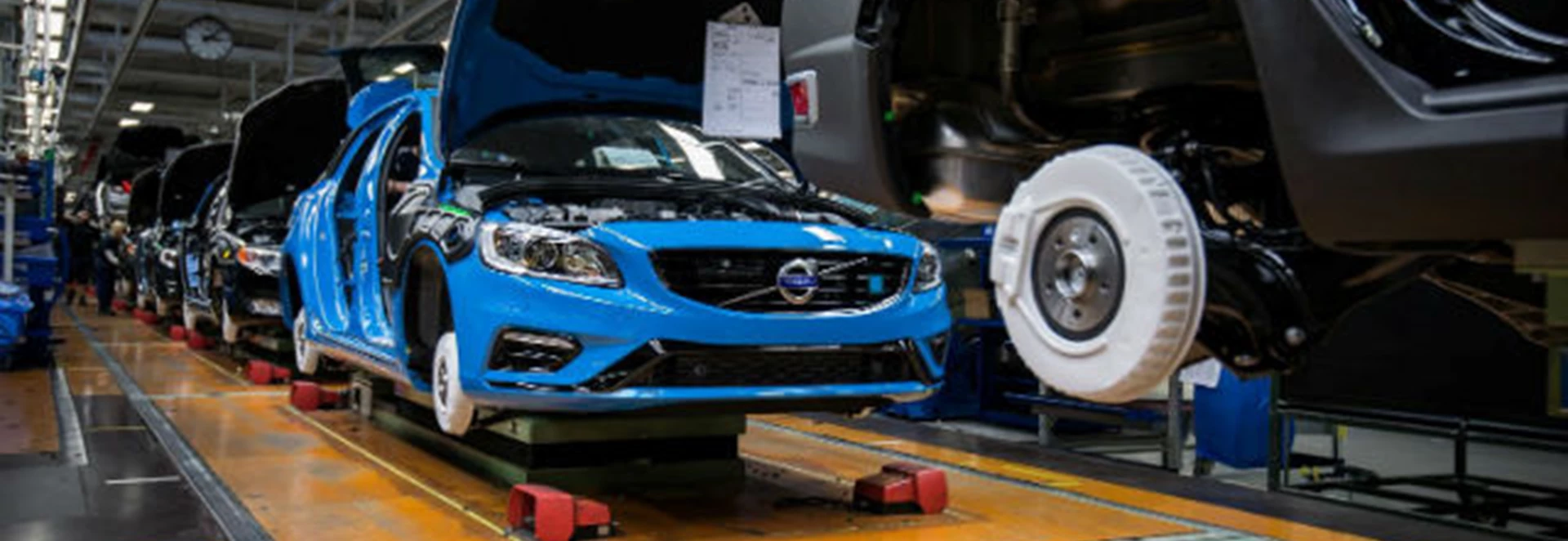The election of US President Donald Trump and the news that Britain had officially voted to leave the European Union followed a huge swell of economic optimism. Both too were swiftly followed by fears that both the US and UK would be slowly cut off from the rest of the world, damaging economies, global security, and, ultimately, lives.
What Trump wants is essentially neo-isolationism, a reaction to what he sees as decades of enriching foreign industries at the expense of America’s own industry; subsidising the wealth of other countries with the wealth of the US people.
For Brexiteers’ Britain, it’s a similar story, one of feeling victimised by a global economy, of being “ripped off” by international powers and agreements, and one where the Leave supporters feel the UK would be better off going it alone. If you’ll excuse the expression, a ‘Britain first’ attitude.
But isolationism of any kind typically isn’t great for business, and with the very real possibility of the departure of Scotland and Northern Ireland from the UK’s makeup, Britain could inadvertently find itself excluded from every country that surrounds it.
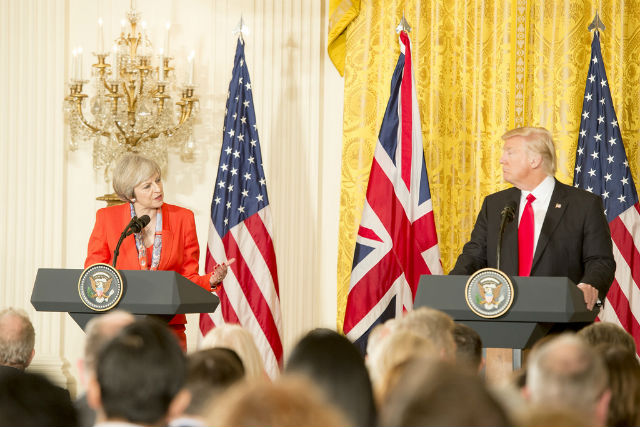
The consensus from many experts is that both America and Britain could find themselves much worse off in a world that largely sees globalisation, free markets and the sharing of both capital and resources as the way forward. Still, it’s easy to see why the “protect our own before others” way of thinking appeals to voters.
But what has any of this got to do with Volvo and its cars? Well, take the XC90 SUV as an example, a car which is currently built in Sweden but which makes use of parts from all around the world, including leather from Portugal, Korean-built battery packs and cabling from Morocco.
Of course, there’s nothing new about that and currently very few, if any, major car manufacturers don’t obtain at least some of their parts from other countries. The difference is that Volvo, which has component suppliers from around 50 different countries across the world, is one of the proudest exponents of the benefits of globalisation.
Volvo, like most Swedish politicians and policymakers, is convinced that globalisation, global competition and free trade are the key to prosperity – something which sits in opposition to the views of Donald Trump and those in favour of Brexit, both of whom blame trade deals for making everyday workers poorer, not richer.
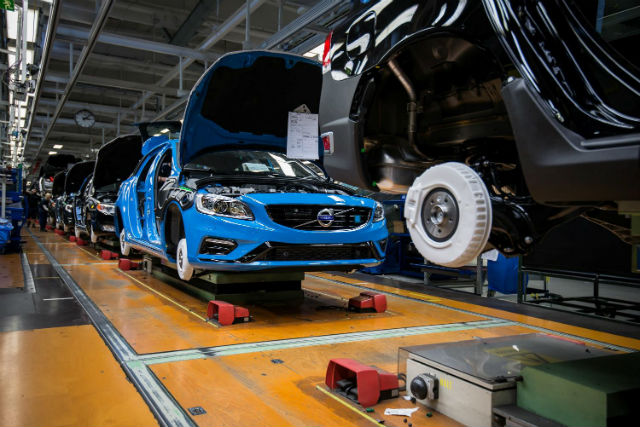
Conversely, while the likes of Trump and the current Tory government prioritise the health of businesses over the welfare of citizens, expecting the financial gains to eventually trickle down and enrich the lives of the ordinary people, Sweden has little sympathy for its companies.
It’s only a few years ago that Volvo itself was in serious trouble and struggling to make ends meet. The company was sold in 1999 to Ford in the US, where it remained for several years before being pawned off alongside a number of other ex-Ford assets, among them Jaguar, Land Rover and Aston Martin.
It was then sold to Chinese conglomerate Geely in 2010, where it’s remained ever since. To many governments, the loss of such a valuable asset to a foreign country would cause a meltdown – just look at the sale of Vauxhall/Opel to the PSA Group for a recent example.
Not so for the government in Stockholm, which barely batted an eyelid. For Sweden, international competition and the buying/selling of companies and businesses is necessary to force local industries to adopt new ideas, new technologies and new ways of thinking.
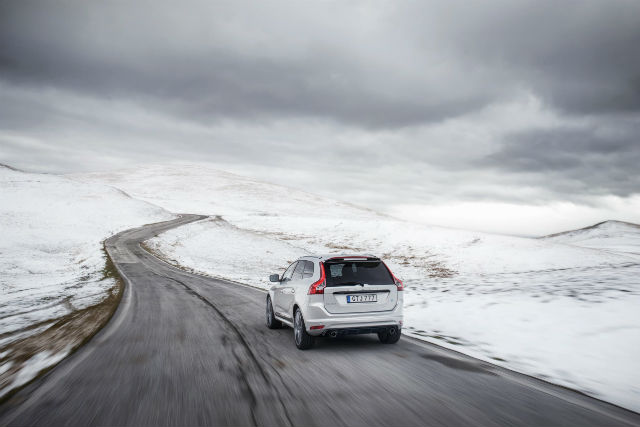
It’s also a country that knows a thing or two about pouring vast amounts of resource into attempting to save dying industries. For years, one of Sweden’s biggest sources of income was its ship building industry, but throughout the 1960s and 1970s its success was hampered by competition from eastern Asia.
The government poured billions into attempting to rescue it and thereby preserve jobs, but it was eroded all the same. Now, ship building accounts for only a tiny amount of the country’s income.
But what of Sweden’s workforce? Well, while the government may show little concern for businesses that prove themselves incapable of competing, the state-supported welfare system has built decades’ worth of funds to support workers who lose their jobs, while simultaneously maintaining one of the lowest amounts of public debt in the world.
Lars Jonung, economics professor at Sweden’s Lund University, told Bloomberg that while the high taxation necessary to fill the state’s coffers have had “a negative effect on growth”, it’s also created a greater tolerance and a bigger safety net for job losses caused by international competition and free trade.
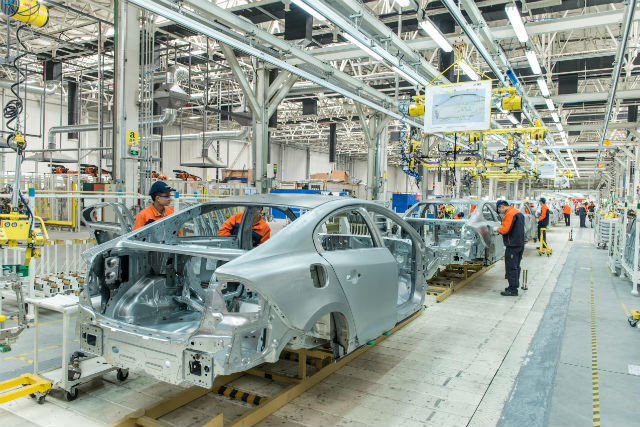
The country’s openness to change has seen the rise and fall of several industries and the loss of several of its biggest companies, Volvo and Saab among them, but in turn has come a groundswell of new ventures - Spotify, IKEA, H&M, a burgeoning videogame industry and others - to replace them.
Of course, such an open-door approach isn’t without its challenges, and one of the biggest talking points in Sweden, as it is in the US and Britain alike, is the question of immigration. In recent years, Sweden has taken in almost as many asylum seekers as the US, calling into question the effectiveness of the country’s long-standing liberal government.
It's also increased support for the anti-immigration Swedish Democrats party, which has swollen to become the second largest in the country, but even they agree that the free flow of capital between countries is key to financial success.
The proof? Well, just look at Volvo. Under Geely’s stewardship it’s managed to turn its flagging fortunes around in record time, having reported a massive increase in profits throughout last year as global sales hit record levels. Many of its vehicles are still built in Sweden too, with Geely largely leaving Volvo to its own devices provided that it makes a good amount of money.

It’s a model that Jaguar Land Rover - another ex-Ford success story, this time part of the Tata conglomerate - is currently using to great effect, but as the lead-up to the triggering of Brexit looms, it’s causing concern for JLR, as well as for all other manufacturers which currently hold facilities in the UK.
“No one wants to produce all of the cars in the country where they’re selling them,” said Volvo Cars CEO Hakan Samuelsson in Stockholm earlier this year. “Trade barriers will always drive up the cost for consumers. One should remember that.”
As for protectionist policies? False hope, according to Sweden’s current minister for enterprise and innovation Mikael Damberg, who says that efforts by governments to protect workers from wage competition will ultimately only end up hurting the country’s overall competitiveness.
“It’s a mistake if the United States turns its back to the world on trade,” he said in a recent interview with Today. “If you think you can defend the old world from technology and innovation, then over time, technology will run you over.”
